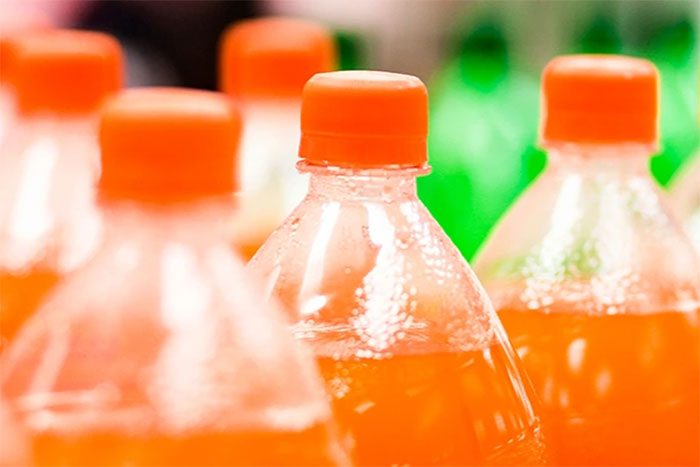A component that was once commonly used in citrus-flavored soft drinks to maintain a harmonious aroma in the beverages has been identified as a harmful substance and has been banned in the United States.
In November 2023, the U.S. Food and Drug Administration (FDA) proposed to revoke the registration of a modified vegetable oil known as BVO following a series of studies related to the toxicity of this substance, and subsequently banned its use nationwide.

Be cautious of harmful substance risks when drinking citrus-flavored soft drinks. (Photo: Getty).
According to Science Alert, BVO, or brominated vegetable oil, has been used as an emulsifier since the 1930s to ensure that citrus flavoring agents do not rise to the surface of soft drinks.
This is possible because dozens of bromine atoms within BVO bind to triglycerides, creating a dense oil that allows it to mix in water when combined with less dense fats.
However, the downside of BVO is that this compound can gradually accumulate in our fat tissues, thereby impeding iodine from performing its essential functions within the thyroid gland.
In 1970, a study in the UK was the first to establish a connection between high concentrations of BVO and health issues in humans, such as heart problems and behavioral disorders.
Since then, the dangers of BVO have been highlighted by numerous countries, including India, Japan, and those in the European Union.
Eventually, the FDA was convinced and found enough evidence to completely ban the use of BVO in carbonated soft drinks.
Fortunately, most major beverage companies are leading the charge. Specifically, Pepsi and Coca-Cola have gradually removed this ingredient from their products over the past decade.
They have not encountered much difficulty, as there are quite a few alternatives that can replace BVO while still maintaining the flavor of the beverages.
However, the same may not apply to the generic soda bottle you may be holding. Therefore, it is advisable to be cautious about the dangers posed by carbonated soft drinks.


















































